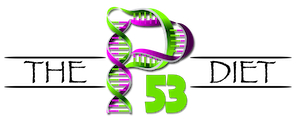- Your cart is empty
- Continue Shopping

What are Enzymes?
Enzymes are needed for a healthy digestive system. Enzymes are used in more than 4000 different processes in our bodies. If you have an enzyme deficiency, it can lead to common digestive problems like IBS, bloating, constipation, diarrhea, acid reflux, heartburn. Enzymes are proteins that do chemical functions in the body, like help with the digestion of food, they help detox the blood, break down toxins, etc.
Classes of Enzymes in the body.
- Hydrolase – By adding water, this enzyme breaks down large molecules into simple molecules.
- Isomerase – Are a class of enzymes that helps facilitate the rearrangements of chemical bonds. Isomerase help breakdown carbohydrates.
- Kinase – Is an enzyme that helps catalyze the transfer of phosphate groups from high energy.
- Ligase – Catalyze the joining of two large molecules by forming a new chemical bond.
- Lyase – Is an enzyme that catalyzes the breaking of chemical bonds, other than hydrolysis.
- Oxido-reductase – Is an enzyme that catalyzes the transfer of electrons from one molecule.
- RNA Polymerase (RNAP) – Is essential for all life. During the transcription process, it is responsible for the unwinding of the double helix of our DNA.
- Transferase – Is a class of enzymes that start the process that transfers a specific functional group from one molecule to another.
Food Enzymes
- Amylase – Is an enzyme that is in our saliva that catalyzes starch into sugars.
- Cellulase – Is an enzyme that breaks down cellulose molecule into monosaccharides — otherwise known as simple sugars.
- Lipase – Is an enzyme that catalyzes the hydrolysis of lipids (fats). Lipase plays a vital role in digestion, transport, and processing of lipids in most living organisms.
- Pepsin – Is an enzyme that breaks down proteins into polypeptides in the stomach.
- Protease – Is an enzyme that aids in digesting long chain proteins into shorter fragments by splitting peptide bonds that link to amino acid residues.
Your body needs enzymes to maintain a healthy life. Cooking raw foods can destroy the enzymes needed. Dangerous chemicals, drugs, and toxins can become inhibitors that block the enzymes from working correctly.
If your body has an enzyme deficiency and it goes unattended, it can lead to:
- Bloating
- Chronic Fatigue
- Circulatory Problems
- Colitis
- Crohn’s Disease
- Diabetes
- High Blood Pressure
- High Cholesterol
- Hypoglycemia
- IBS
- Weight Gain/Loss
The best way to ensure that your body does not have an enzyme deficiency is to make sure they are getting raw fruit, vegetables, whole grains, nuts, and seeds daily. Remember that harmful chemicals can act as inhibitors. Meat and dairy have shown to carry compounds that can act as inhibitors. Notice that the enzymes end with “ase.”


